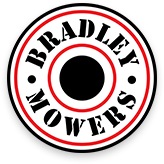We all want a perfect lawn. Statistics reveal that an average American spends about four hours per week taking care of their lawn. However, many times, we finish mowing the lawn only to get disappointed in the end. It could be your lawn lacks that plush green look or the cut seems inconsistent and choppy, or maybe you hate the sulky type you are using. Let’s look at whether the sulkies you are using are helping or damaging your lawn.
Advantages of Sulkies on Your Lawn
The best part about having sulky lawnmowers is that there is little that could go wrong with them. If you like striping on your lawn, sulkies are a great aid at that. They will help you cut and shape your grass to your liking.
The two-wheel sulky is advantageous over the single wheel sulky. This is because having two wheels reduces the PSI that the single-wheel sulkies have by half. Twice as many wheels and half the PSI: that's pretty easy to understand. It also removes the dark line from the single-wheel sulky, but this also depends on your wheelbase.
Platform-type sulkies help take care of your grass in a way that will rival that neighbor who always seems to have the best lawn in your block. Sulkies glide over bumps, helping you achieve a relatively flat ground while mowing. There are no stripes left with platform sulkies. Also, they help reduce soil compactness, especially after rains, which is often related to your lawn’s health. Platform sulkies leave almost no trail after mowing. Therefore, they're the best if you want a seamless mow.
Cons of Using Sulkies on Your Lawn
The bad side of using wheeled sulkies is the stripes that appear on your lawn after mowing. Two-wheel sulkies with a narrow wheelbase could also leave a trail on your lawn. With the two-wheel sulky, you have double the wheels that could leave a trail on your lawn grass. These trails often seem unattractive and often appear as dirt strips on your lawn. For some people, this is a deal-breaker, not to mention the high PSI on the soil it comes into contact with, which leads to soil compaction.
Compact soil does not favor root expansion. If your soil is compact, water and nutrients will barely get down to the roots zone, promoting a shallow root system. Your turf’s root system will have a hard time expanding if the soil is compacted. With time, your lawn looks more and more unhealthy. Wheeled sulkies are also known to jackknife, which potentially damages your lawn. Jackknifing leaves patches on your lawn at the point it occurs if you are not cautious.
With that said, you now know how sulkies affect the end-product after mowing your lawn. Consider both the pros and cons. If you feel one side weighs more than the other, be wise in your decision. Always consider the health of your lawn before all else.
